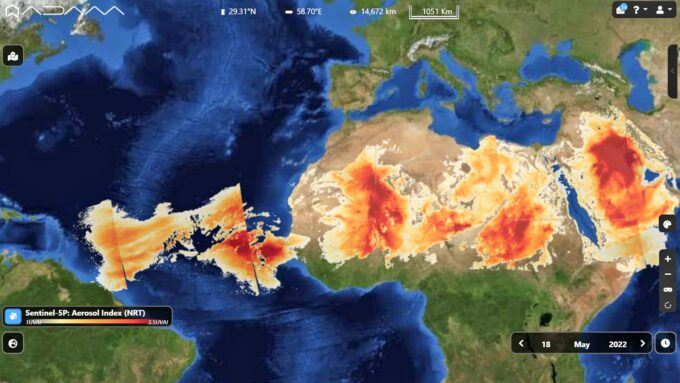[ Envirowatchers ] [ Main Menu ]
18037
From: ryan, [DNS_Address]
Subject: grim tidbits...
URL: https://www.counterpunch.org/2022/05/20/roaming-charges-53/
|
+ In the last quarter of 2021, the EU’s greenhouse gas emissions were higher than any quarter since late 2018, wiping out the gains made during the pandemic. + Shale oil companies have pocketed $180 billion this year thanks to soaring prices and spent almost nothing… + Glacial melt in the Canadian Rockies is now irreversible, according to research out of the University of Saskatchewan. This has huge implications for freshwater supplies in Canada and the US. John Pomeroy, professor and Canada Research Chair in water resources and climate change at the University of Saskatchewan:“Even if somehow, magically, we’re able to stop global warming tomorrow and return the atmosphere to more normal CO2 concentrations, we would lose most of the Rockies’ glaciers.” + As China’s industrial output declines, so too does electricity generation by 4.3% yoy (year-over-year). Thermal power output fell by 12%, the biggest drop since 2008. Coal usage is being replaced by surging solar capacity, as China installed in Q1 than energy analysts expected… + More than 75% of the planet could face drought conditions by 2050, according to a new UN report titled Drought in Numbers. The report found that both drought frequency and duration has already increased by 29 percent since 2000. Historically, droughts have been the planet’s deadliest natural disaster, having killed 650,000 people between 1970 and 2019. + Italy’s Po River has crossed the climate Rubicon and is drying up, its estuary salinating… + The rate of tree death in the tropical old-growth forests of Queensland, a northern province of Australia, has doubled since 1990, largely as a consequence of climate change. + Under EU rules, emissions from biomass aren’t counted toward the bloc’s pledges to reduce greenhouse gasses.But burning wood to generate electricity releases more carbon dioxide than fossil fuels to produce the same amount of energy. + More than 20 million people in Kenya and Somali will likely experience extreme hunger this year as delayed rains exacerbate what was already the worst drought in four decades. + By 2030, less than 30% of the global harvests of 10 major crops may be directly consumed as food in the countries where they were produced. This is down from about 51% in the 1960s. + Reducing air pollution from burning of fossil fuels could save as many as 50,000 lives a year in the US. People rebelled against wearing masks that could have saved 500,000 people a year… + Map showing how the plume from the massive dust storm over the Middle East and the Sahara this week has now hit the Caribbean… + According to the Department of Energy, July 2008 marked the highest nationwide average gasoline price ($5.10 per gallon) when adjusted for inflation. From 2011 to 2014, the average gasoline price was between $4 and $5 per gallon, adjusted for inflation. The lowest gasoline price in recent times was in April 2020. + Electric vehicles are now displacing about 1.5 million barrels a day of oil demand, most of it from electric two/three-wheelers and electric buses in Asia. + There’s a movement to make air-conditioning a “human right.” Air conditioning only exacerbates the crisis it seeks to ameliorate… |
18038
From: ryan, [DNS_Address]
Subject: Re: grim tidbits...
|
forgot the image... + Map showing how the plume from the massive dust storm over the Middle East and the Sahara this week has now hit the Caribbean… 
|
Responses:
[18039]
18039

From: Eve, [DNS_Address]
Subject: Re: grim tidbits...
|
Thanks. Sharing an article link on the dust storm I found helpful. https://www.severe-weather.eu/global-weather/large-saharan-dust-cloud-event-forecast-united-states-fa/ |
Responses:
None
[ Envirowatchers ] [ Main Menu ]